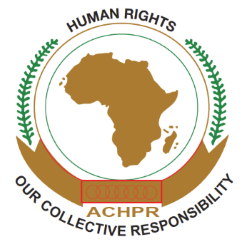The 69th Ordinary Session of the African Commission on Human and Peoples’ Rights is scheduled to begin on Monday, November 15, 2021 in Banjul, The Gambia.
The three-week session will take place virtually due to the Covid-19 pandemic.
On the commission’s agenda will be discussions on several session activities, including the human rights situation in Africa; state party reports; applications for affiliate status from national human rights institutions and observer status from non-governmental organisations; and the activity reports of the commissioners and special mechanisms.
There will also be panel discussions; and consideration of communications, concluding observations, and promotion of mission reports before the session ends on Sunday, December 5.
The talks will include perspectives of the AU theme of 2021 – which the African Union declared “The AU Year of the Arts, Culture and Heritage: Levers for Building the Africa We Want” – as far as human rights are concerned.
Other talks will be on advocacy for the ratification of the Protocol on the Rights of Older Persons and the Protocol on the Rights of Persons with Disabilities, as well as the situation of human rights defenders in exile.
One panel will assess the implementation of the Global Compact on Migration by key actors in Africa, while another one will discuss the death penalty in Africa and states’ commitments.
The panel of the Committee for the Prevention of Torture in Africa will consider the compilation of jurisprudence relative to Article 5 of the African Charter.
Two newsletters – on Police and Human Rights in Africa, as well as the one of the Working Group on Extractive Industries – will be launched.
During the session on state reports, Benin, Kenya, Namibia, and Eswatini will be reviewed. State parties are required to report, every two years, on the legislative or other measures taken with a view to giving effect to the rights and freedoms recognised and guaranteed by the African Charter.
The African Commission meets two times a year during its ordinary sessions. It may also hold extraordinary sessions, which are convened by its chairperson upon request by the chairperson of the African Union Commission or a majority of the members of the commission
The ACHPR was established by the African Charter on Human and Peoples’ Rights and is also referred to as the African Charter of the Banjul Charter. It is an international instrument that is intended to promote and protect human rights and basic freedoms on the African continent.
In 1979, the Assembly of Heads of State and Government of the then Organisation of African Unity, which later became the African Union (AU), adopted a resolution calling for the creation of a committee of experts to draft continent-wide human rights instruments similar to those that existed in Europe and America.
The draft, which came to be known as the African Charter on Human and Peoples’ Rights, was adopted on June 27, 1981, in Nairobi by the AU and came into force on October 21, 1986.
By virtue of Article 30 of the African Charter, the commission was established as an enforcement mechanism for the charter. It is composed of 11 commissioners, nationals of the member states of the AU, elected in their individual capacity.
The commission is different from the AU Commission. The AU Secretariat is based in Addis Ababa, Ethiopia, while the African Commission on Human and Peoples’ Rights has its headquarters in Banjul. The commission’s mandate is to promote human and people’s rights; ensure the protection of human and peoples’ rights as enshrined in the African Charter; and interpret all the provisions of the African Charter at the request of a state party.
The African Commission’s 69th Ordinary Session was preceded by the Forum on the Participation of NGOs, or simply the NGO Forum, which was held online from November 10-12, 2021.
This is an advocacy platform coordinated by the African Centre for Democracy and Human Rights Studies, “to promote advocacy, lobbying and networking among and between human rights NGOs, for the promotion and protection of human rights in Africa”.
The three-day activities of the NGO Forum covered themes closely related to those expected to be discussed at the African Commission sessions. These include the situation of human rights and democracy in Africa, with a focus on the 40th anniversary of the adoption of the African Charter on Human and Peoples’ Rights; state reports to be examined during the 69th session; the impact of civil, political, economic, and cultural rights on the response to the Covid-19 pandemic; and the situation of civil society organisations and their engagement with the ACHPR, especially on women’s rights, child marriage, and female genital mutilation.
Other topics included regional and continental access to justice in Africa and networking for human rights in Africa, on the launching of the Lusophone Human Rights Defenders Network.
Special interest group discussions centred around three questions, namely: The successes the groups have registered in their work in the course of the implementation of the African Charter and other human rights instruments; the challenges experienced and their mitigation; and recommendations for the next 40 years for the implementation of the African Charter and other human rights-related instruments.







